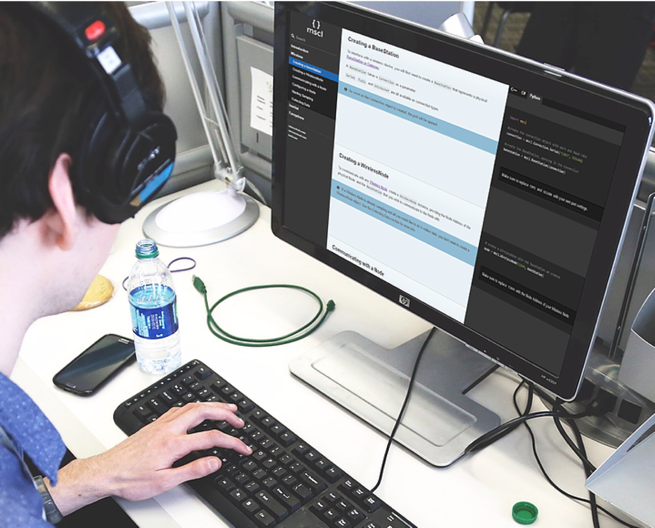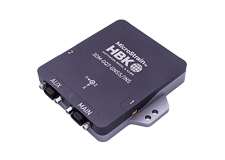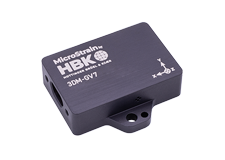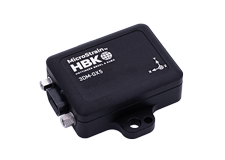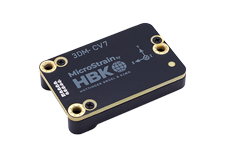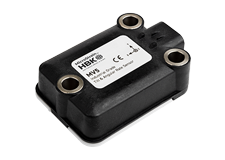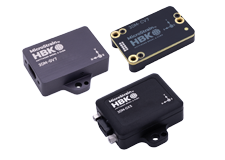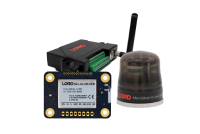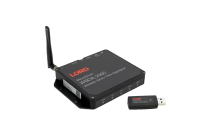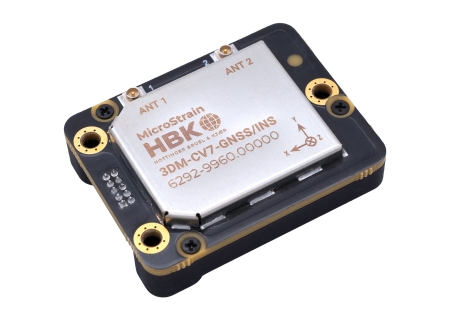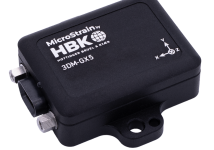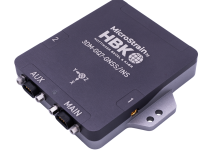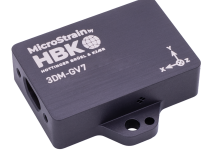MicroStrain 3DM-CV7-GNSS/INS Tactical Grade Embeddable Inertial Navigation System
The 3DM-CV7-GNSS/INS is the next evolution in inertial navigation technology, delivering tactical-grade performance within an exceptionally compact and lightweight OEM form factor. This sensor has been designed specifically for navigation and localization applications where size, weight, and cost are primary considerations. Beyond its core inertial capabilities, the 3DM-CV7-GNSS/INS integrates onboard GNSS receivers for GNSS-aiding, as well as sophisticated orientation algorithms, precise internal time management, and a highly adaptable event triggering system, enabling complex navigation applications with ease.Specs
Performance
- 0.05° roll and pitch
- 0.25° heading accuracy
- 1.5°/h gyro bias instability
- Adjustable sampling rates up to 1000 Hz
Features
- RTK capable
- Dual-frequency GNSS receiver (L1/L5)
- SPARTN 2 and RTCM 3.3 support
- Highly configurable extended Kalman filter
- 4 GPIO pins for flexible aiding and time synchronization
- 4 configurable aiding frames simplify external sensor input
SWaP-C
- Lightweight at only 15.6 g
- Optimized for cost-sensitive applications
- Mounting footprint only 38mm x 30mm
- OEM form factor for flexible system integration
Use Cases
Compact, state-of-the art inertial sensors with proven fifth generation high-performance industrial grade solid-state MEMS accelerometer and gyro inertial sensor technology.
Low-cost, compact size and full 360-degree measurement range about all axes
Full accuracy over the entire operational temperature range of -40°C to 85°
Auto-Adaptive Extended Kalman Filter for optimal dynamic accuracy and on-vehicle performance.
Low-noise, linear, and stable MEMS gyros and accelerometers enable superior heading accuracy during turns & bumps
Auto-adaptive Kalman Filter algorithms provide exceptional dynamic performance
Auto self-calibration and automatic anomaly rejection make units with magnetometer reliable and accurate heading reference
Fully calibrated and temperature compensated IMUs provide stable performance in demanding environments
Low-noise, low latency, and linear MEMS gyros and accelerometers result in accurate and stable attitude tracking
Rugged machined aluminum industrial packaging provides reliable performance in high-vibration and shock environments
Compact OEM versions for embedded applications permit lower cost without losing accuracy
Documentation
General Documentation
Downloads
Software/Firmware
Software
ROS
Robot Operating System (ROS) is an open-source, meta-operating system for your robot. It provides the services you would expect from an operating system, including hardware abstraction, low-level device control, implementation of commonly-used functionality, message-passing between processes, and package management. ROS can be used in building and simulating robotics applications, as well as unmanned ground vehicles and simultaneous localization and mapping (SLAM). To facilitate better integration within the ROS ecosystem Microstrain has develop an open source License free (MIT License) series of drivers specifically designed and tested for ROS.

SensorCloud™
Free and paid plans available
SensorCloud is a unique sensor data storage, visualization, and remote management platform that leverages powerful Cloud computing technologies to provide excellent data scalability, rapid visualization, and user programmable analysis.
LORD sensors can instantly upload their data to SensorCloud via an ethernet-connected WSDA-2000. Once uploaded, your data is securely stored in the Cloud and can be accessed from anywhere, or downloaded for offline use.
Configurable alerts can be set to help notify you of real-time event in your data.
MathEngine allows you to perform analytics on your data, all in the Cloud. Pre-built functions are available for ease of use, while IPython Notebooks allow advanced users to write custom scripts to be run on their data once, or on a schedule.

{MSCL}
Free and open source API
The MicroStrain Communication Library (MSCL) makes it simple to write code that interacts with our Wireless, Inertial, and Displacement sensors.
MSCL is completely open source and hosted on GitHub under the MIT license.
Full documentation, example code, and a quick start guide are provided to help you get started.
Available for C++, Python, and .NET.
